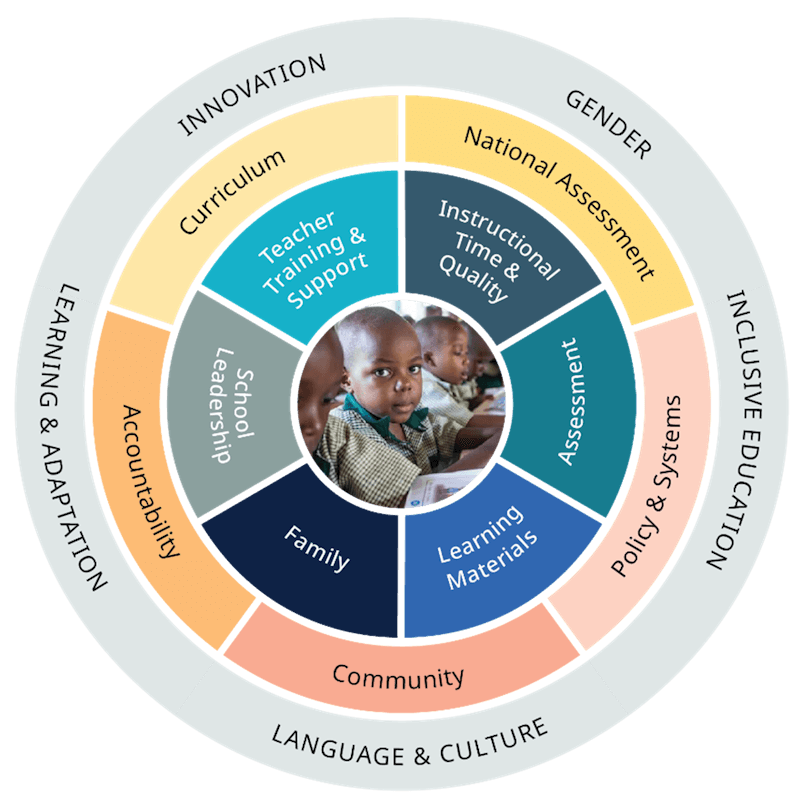


This web-based resource guide serves as a toolbox of resources, curated to meet the informational needs of development partners (i.e. entities working with, or in alignment with, governments to achieve development goals). It guides users towards the evidence base on foundational literacy and numeracy, and from there, to the best practices and tools for planning, designing and implementing higher quality, more cost-effective foundational learning programs.
Resources in this guide are organized by program development cycle, since governments and funders’ roles and requirements shift based on the stage of the reform effort. Reform efforts include foundational learning programming at a school and community level as well as the surrounding systems and individuals creating the enabling conditions for education delivery. This graphic represents parts of the system that work together to contribute to learning outcomes, including the child at the center.

Illustrations of how this guide may be used:
The Development Partner Resource Guide website is organized by reform stages, which can also be thought of as programmatic stages. The stages are below and reflected in the linked boxes which you can click on to navigate to that section.
Each stage is further broken down by sub-topic. These sub-topics emerged from discussions with development partners on current needs.
Guiding Questions are found within each sub-topic. These questions give users some ideas about factors to consider while digging into the associated resources.
Foundational Learning provides the building blocks for an educated, healthy, secure, and prosperous society. Across countries, human capital accounts for 20% to 50% of GDP, but according to the World Bank, 70% of 10-year-olds in low and middle income countries cannot read and understand an age-appropriate text. Yet literacy, numeracy, and other foundational skills predict higher wages, better health, and societal resilience. The evidence is clear: we must invest in building foundational skills to safeguard a child’s future and build wealth across nations of the world.
To learn more about why foundational learning is vital, please see the following resources:
Content for the Donor Playbook was curated and organized by FHI 360 and RTI International and funded by the Gates Foundation through the Science of Teaching Grant.